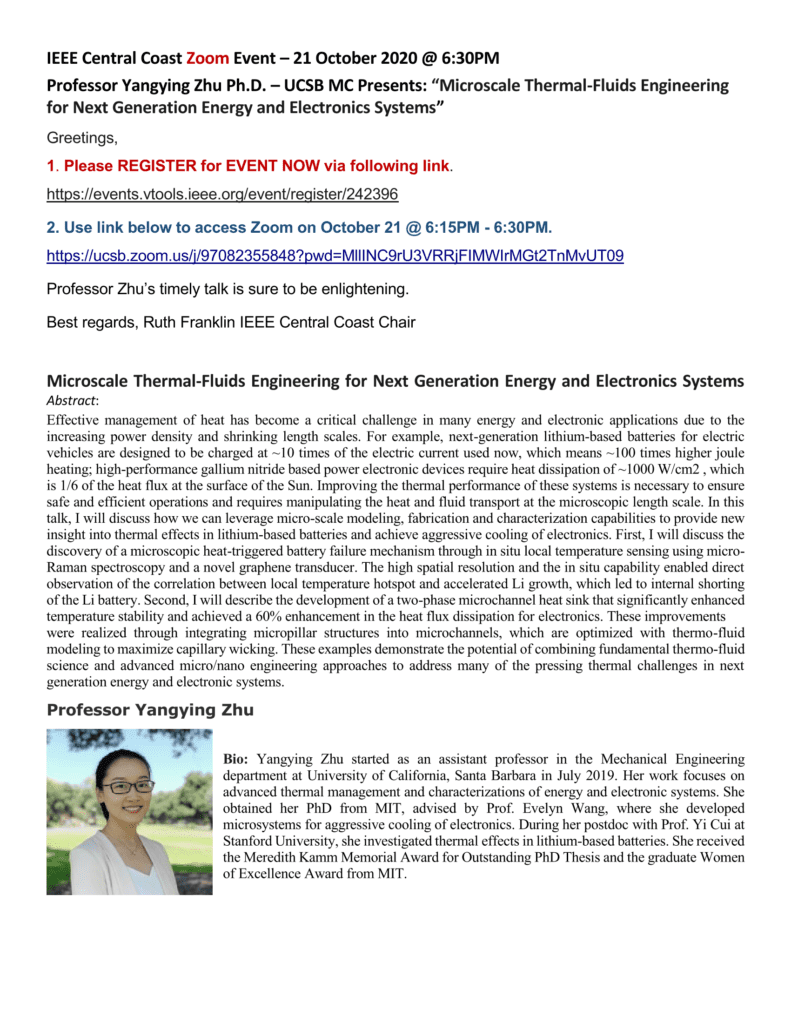VIRTUAL: Microscale Thermal-Fluids Engineering for Next Generation Energy and Electronics Systems – 21 October 2020 @ 6:30PM
IEEE Central Coast Zoom Event – 21 October 2020 @ 6:30PM
Professor Yangying Zhu Ph.D. – UCSB MC Presents: “Microscale Thermal-Fluids Engineering for Next Generation Energy and Electronics Systems”
1. Please REGISTER for EVENT NOW via following link.
2. Use link to access Zoom on October 21 @ 6:15PM – 6:30PM.
Professor Zhu’s timely talk is sure to be enlightening
Microscale Thermal-Fluids Engineering for Next Generation Energy and Electronics Systems
Abstract:
Effective management of heat has become a critical challenge in many energy and electronic applications due to the increasing power density and shrinking length scales. For example, next-generation lithium-based batteries for electric vehicles are designed to be charged at ~10 times of the electric current used now, which means ~100 times higher joule heating; high-performance gallium nitride based power electronic devices require heat dissipation of ~1000 W/cm2 , which is 1/6 of the heat flux at the surface of the Sun. Improving the thermal performance of these systems is necessary to ensure safe and efficient operations and requires manipulating the heat and fluid transport at the microscopic length scale. In this talk, I will discuss how we can leverage micro-scale modeling, fabrication and characterization capabilities to provide new insight into thermal effects in lithium-based batteries and achieve aggressive cooling of electronics. First, I will discuss the discovery of a microscopic heat-triggered battery failure mechanism through in situ local temperature sensing using micro-Raman spectroscopy and a novel graphene transducer. The high spatial resolution and the in situ capability enabled direct observation of the correlation between local temperature hotspot and accelerated Li growth, which led to internal shorting of the Li battery. Second, I will describe the development of a two-phase microchannel heat sink that significantly enhanced temperature stability and achieved a 60% enhancement in the heat flux dissipation for electronics. These improvements
were realized through integrating micropillar structures into microchannels, which are optimized with thermo-fluid modeling to maximize capillary wicking. These examples demonstrate the potential of combining fundamental thermo-fluid science and advanced micro/nano engineering approaches to address many of the pressing thermal challenges in next generation energy and electronic systems.


